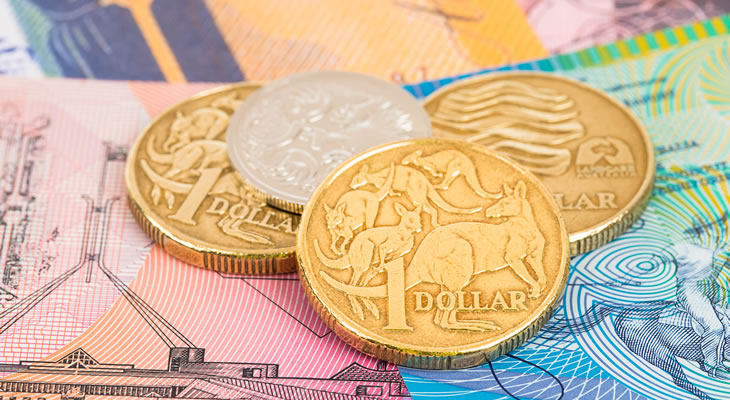Pound Sterling Australian Dollar (GBP/AUD) Exchange Rate Falls as Aussie Job Advertisements Jumps
The Pound Sterling Australian Dollar (GBP/AUD) exchange rate edged lower, leaving the pairing trading at around AU$1.7925.
The Australian Dollar rallied on Monday after data revealed job advertisements in the country jumped by a record 42%.
June’s advertisements increased as Australia began to re-open after the coronavirus lockdowns.
The data from Australia and New Zealand Banking Group showed job advertisements jumped from May’s 62,872 to June’s 89,252. Earlier data showed May’s adverts fell 0.3% after plummeting by 53.7% in April.
However, despite the rebound last month, ads were still down by around 44.6% compared to June last year.
Commenting on the latest data, ANZ’s senior economist, Catherine Birch noted:
‘This is not overly surprising, given that Covid-19 restrictions continued to ease across most of Australia during June.
‘After an initial bounce, we expect the recovery will be a lot slower. There have been a number of recent large-scale lay-offs announced across a wide range of sectors, including travel, retail, media, consulting, and education.’
Meanwhile, optimism that today’s US services data will increase hopes for a global economic recovery from the coronavirus crisis. This also offered the risk-sensitive ‘Aussie’ support today.
Although, traders remain cautious after Australia’s Victoria state revealed it would be closing its border with New South Wales. This is to contain a sudden spike in coronavirus infections.
Sterling (GBP) Slides as Government Still Has ‘Potholes to Navigate’
The Pound edged lower against the ‘Aussie’ today despite data showing Britain’s construction sector saw the fastest rise in activity for nearly two years.
The index jumped from May’s dire 28.9 to 55.3 in June. This was the fastest rate of expansion since July 2018.
Data revealed residential building was the best performing area. Around 46% of those surveyed stating there was an increase in activity.
Although, while new order stabilised after three months of sharp declines, employment fell yet again. Added to this, a lack of available materials buoyed input costs.
Commenting on the latest data, Duncan Brock, Group Director at the Chartered Institute of Procurement & Supply said:
‘Builders were the stars of the UK economy in June with the fastest rise in purchasing activity in almost five years, as pent-up building plans were unleashed following the easing of lockdown measures. Housing led the way with the other main sectors closely behind as several larger infrastructure projects were also on the move.
‘Only two months ago the construction sector produced the worst results in the history of the PMI, and there are still some potholes to navigate around as Government support for jobs is stripped away. Employment levels remained deflated, with reports of redundancies, furloughed staff and a reluctance to boost staff numbers when new order levels remained so flat. But with a significant rise in the headline output number, it looks as though all the building blocks are there for the sector’s increasing health..’
Pound Australian Dollar Outlook: RBA in Focus This Week
Looking ahead, all eyes will be on tomorrow’s Reserve Bank of Australia’s (RBA) monetary policy meeting and rate decision. The meeting could allow the Australian Dollar (AUD) to extend its gains against the Pound (GBP).
Interest rates are expected to remain at the current all-time low of 0.25% on signs the downturn will not be as bad as expected. A more upbeat tone from the central bank and recent gains in commodity prices such as copper will boost the ‘Aussie’.
Meanwhile, trade negotiations between the UK and European Union will remain in focus for Sterling traders.
If reports reveal negotiations between London and Brussels continue to lag, it will weigh on GBP. This will send the Pound Australian Dollar (GBP/AUD) exchange rate lower.


Comments are closed.